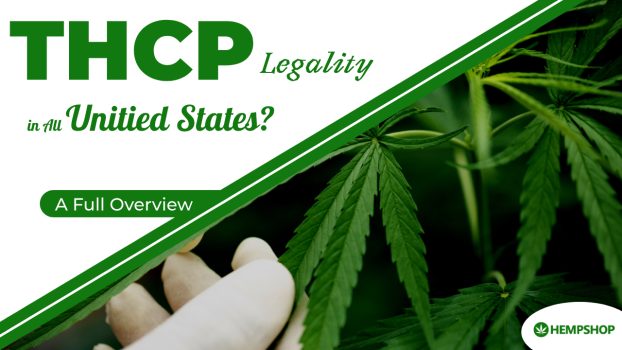In the United States, THCP legality is a complex scenario, with 32 out of 50 states permitting some form of legality, be it for medical or recreational use, while 18 states maintain strict regulations or outright prohibition. Here, you’ll find valuable insights into the legal status and future potential of THCP in the U.S., emphasizing the importance of staying updated on changing cannabis laws.
As a THC-P enthusiast with hands-on experience, I’m here to provide you with the latest on its ever-changing legal status across states.
What is THC-P?
THC-P, short for Δ9-Tetrahydrocannabiphorol, is a lesser-known cannabinoid that has recently piqued the curiosity of researchers and cannabis enthusiasts alike. This compound exhibits a unique and potentially potent profile, which has led to increased interest in THCP legality and potential benefits.
The THC-P Legality Framework
The THC-P legal status in the United States is a complex and constantly changing topic. THC-P remains largely unregulated on a federal level. However, it’s crucial to understand that individual states have the authority to implement their own cannabis laws, which can vary significantly from one location to another.
Some states have embraced THCP for medical and recreational use, while others have strict regulations in place. To provide clarity, we present the THCP’s legality across states and a summary of key state laws.
Let’s explore the state-by-state THC-P legality, shedding light on where it currently stands:
| State | Medical Use | Recreational Use |
|---|---|---|
| Alaska | Legal | Legal |
| Arizona | Legal | Legal |
| Arkansas | Legal | Medical only |
| California | Legal | Legal |
| Colorado | Legal | Legal |
| Connecticut | Legal | Medical only |
| Delaware | Legal | Medical only, |
| Florida | Legal | Medical only, |
| Georgia | Legal | Medical only |
| Hawaii | Legal | Medical only |
| Idaho | Illegal | Illegal |
| Illinois | Legal | Legal |
| Indiana | Legal | Medical only |
| Iowa | Legal | Medical only |
| Kansas | Illegal | Illegal |
| Kentucky | Legal | Medical only |
| Louisiana | Legal | Medical only |
| Maine | Legal | Legal |
| Maryland | Legal | Medical only |
| Massachusetts | Legal | Legal |
| Michigan | Legal | Legal |
| Minnesota | Legal | Medical only |
| Mississippi | Legal | Medical only |
| Missouri | Legal | Medical only |
| Montana | Legal | Legal |
| Nebraska | Illegal | Illegal |
| Nevada | Legal | Legal |
| New Hampshire | Legal | Medical only |
| New Jersey | Legal | Legal |
| New Mexico | Legal | Legal |
| New York | Legal | Legal |
| North Carolina | Legal | Medical only |
| North Dakota | Illegal | Illegal |
| Ohio | Legal | Medical only |
| Oklahoma | Legal | Medical only |
| Oregon | Legal | Legal |
| Pennsylvania | Legal | Medical only |
| Rhode Island | Legal | Medical only |
| South Carolina | Legal | Medical only |
| South Dakota | Illegal | Illegal |
| Tennessee | Legal | Medical only |
| Texas | Illegal | Illegal |
| Utah | Illegal | Illegal |
| Vermont | Legal | Legal |
| Virginia | Legal | Medical only |
| Washington | Legal | Legal |
| West Virginia | Legal | Medical only |
| Wisconsin | Legal | Medical only |
| Wyoming | Illegal | Illegal |
| District of Columbia | Legal | Legal |
The THC-P Legality in Future
As we’ve seen, THC-P’s legal status varies from state to state, with most states lacking clear regulations. It’s essential to monitor the evolving legal landscape surrounding cannabinoids like THC-P, as changes are likely to occur in the coming years.
The path forward for THC-P legalization depends on several factors, including ongoing research, public opinion, and the willingness of state governments to address its legal status. Advocacy efforts and scientific studies will likely play a pivotal role in shaping future legislation.
Conclusion
In the rapidly changing world of cannabis legalization, THC-P stands as a fascinating yet enigmatic cannabinoid. While federal regulations remain absent, individual states are navigating their own unique paths when it comes to THC-P legality.
As with any emerging field, staying informed and monitoring legislative developments is crucial. The legal status of THC-P may change, and those interested in exploring its potential benefits should do so responsibly and in compliance with their respective state laws.
In summary, while the legal landscape of THC-P is currently uncertain, ongoing discussions and research may shed light on its future status in the realm of cannabis legalization.








